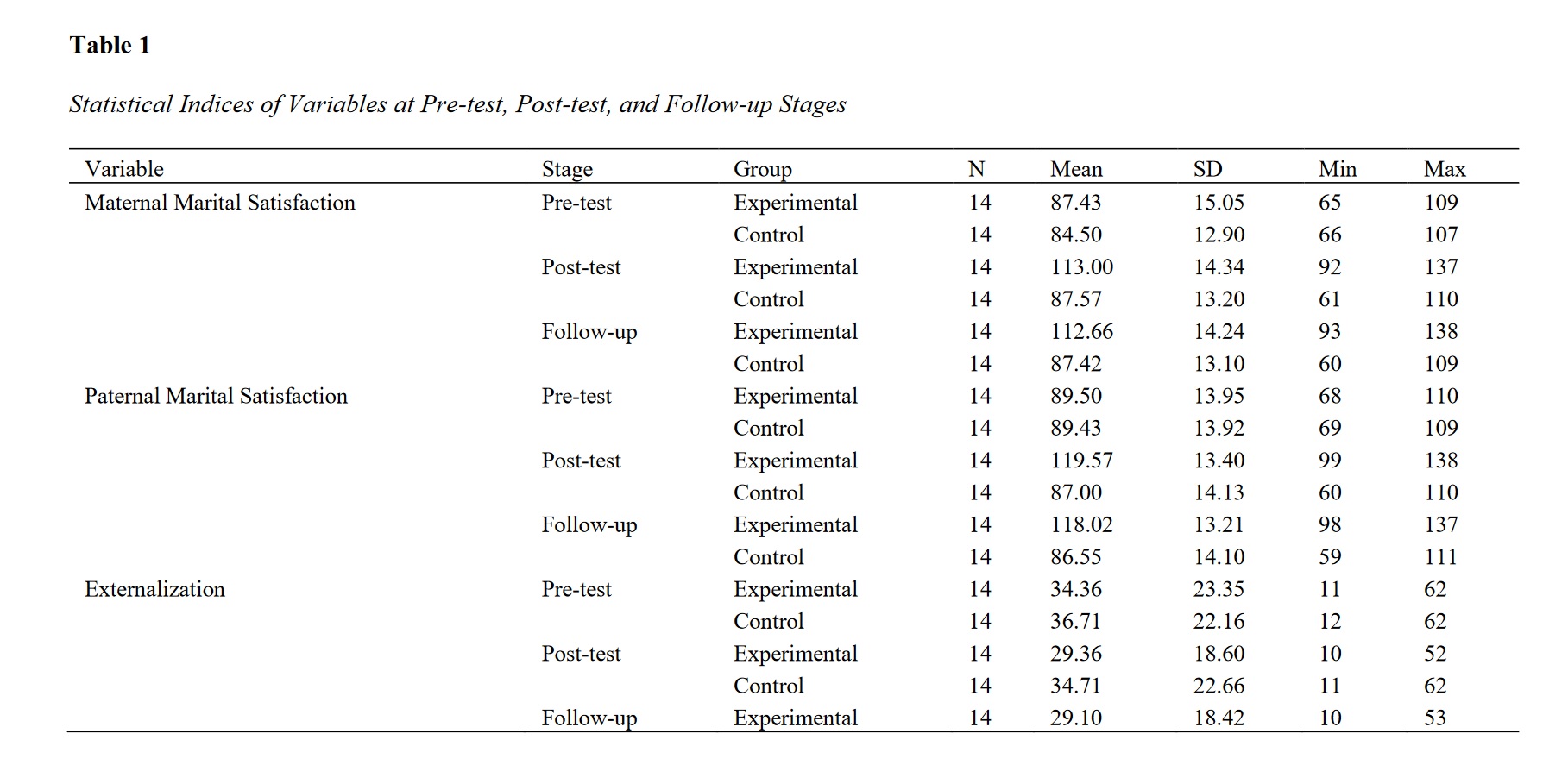Examining the Efficacy of Couples Therapy with a Cognitive-Behavioral Approach on Marital Satisfaction of Parents and Externalized Behavioral Problems of Students Aged 10 – 15 with Autism Spectrum Disorder
Keywords:
Couples therapy, cognitive-behavioral approach, behavioral problems, autismAbstract
Objective: Autism spectrum disorders, being neurodevelopmental, present with serious difficulties in social interactions, verbal and non-verbal communication, repetitive behaviors, and restricted interests. This research aimed to investigate the efficacy of couples therapy with a cognitive-behavioral approach on the marital satisfaction of parents and the externalized behavioral problems of students with autism spectrum disorder.
Methods and Materials: The current research design was quasi-experimental, utilizing a pre-test, post-test, and follow-up with a control group. The population for this study consisted of all parents of male students aged 10 to 15 with autism in Mashhad in the year 2023. Sampling was conducted through a convenience method, including 58 qualified parents of children with internalized behavioral problems, selected from the parents at the Tabbasum public center and the Mehr Amin private clinic, and were divided into experimental and control groups. Data were collected using the Spouses' Marital Satisfaction Questionnaire, the Child Behavior Checklist, and the Gilliam Autism Rating Scale-2, and analyzed using repeated measures ANOVA with SPSS software version 22.
Findings: The results indicated that implementing couples therapy with a cognitive-behavioral approach significantly affected mothers' marital satisfaction (F=38.98, P<0.001), fathers' marital satisfaction (F=65.25, P<0.001), and the externalized behavioral problems (F=61.80, P<0.001) of children with autism spectrum disorder.
Conclusion: It can be concluded that couples therapy with a cognitive-behavioral approach is effective in enhancing the marital satisfaction of parents and addressing the externalized behavioral problems of children with autism spectrum disorder. This approach can be utilized to reduce the psychological issues of children with autism spectrum disorder.
Downloads

Downloads
Additional Files
Published
Issue
Section
License
Copyright (c) 2024 Robabeh Kheirkhah, Masoud Gholamali Lavasani, Gholamali Afrooz (Author)

This work is licensed under a Creative Commons Attribution-NonCommercial 4.0 International License.














